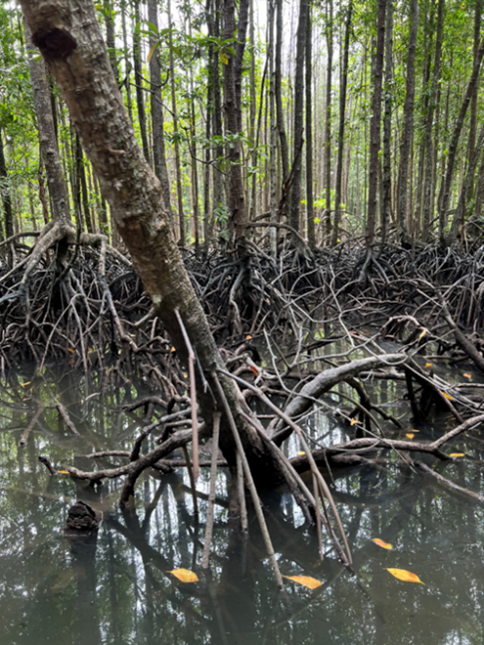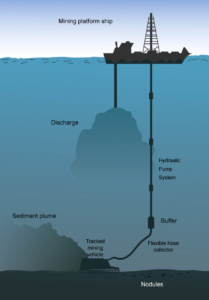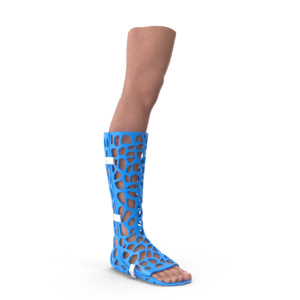SINTEF has been present in projects with low- and middle-income countries for a long time, working with technology and methods to create a better society. Through our corporate initiative Global Sustainable Development, we aim to increase this activity. Additionally, we seek to enhance interdisciplinary collaboration, as we believe it is necessary to achieve the global sustainability goals.
One way to achieve this is by emphasizing various ideas for future projects, all of which build upon SINTEF’s previous experiences but also offer the possibility of involving new partners. Here is a selection of project ideas that SINTEF will develop in 2024, email the contact person if you are interested in joining or want more information.
Reducing food loss and waste in India
This initiative aims to minimize food loss and waste within the cold chain. Food loss and waste are significant global issues, where solutions could lead to a better food supply and health, along with less environmental and climate impact. The project would include identifying areas of loss and waste, enhancing temperature control to improve food quality and shelf life. It would also involve increasing energy efficiency and the use of natural refrigerants in refrigeration and heat pumping systems. Additionally, it seeks to optimize the utilization of side streams and residual raw materials while also considering consumer preferences and financial aspects. Contact Kristina Widell.
Sustainable aquaculture in Malaysia
In this project, we aim to assist the indigenous population living in the mangrove forests of Malaysia in developing sustainable methods for harvesting and production of tropical seaweed, portunid crabs, and sea cucumbers. Through collaboration with a Norwegian-owned company based in Malaysia, our goal is to produce juveniles for release into the mangroves, ultimately improving the living conditions of the indigenous people. With SINTEFs expertise in juvenile production technology, and the local knowledge provided by the other companies about the species and access to both land and sea areas for aquaculture, we are well-positioned to help the indigenous communities create a circular economy through regenerative aquaculture. Contact Gunvor Øie.

The environmental, social, and economic assessment of Deep-Sea Mining
The study aims to analyse key actors in the Norwegian region, and in low- and middle-income countries, with potential for deep-sea mining (DSM). This includes mapping current stakeholders like fisheries, tourism industry, governmental institutions or research organisations, as well as identifying potential future stakeholders such as investors, mining companies, and technology firms. Additionally, the study proposes a Net Benefit Analysis (NEBA) for DSM, incorporating environmental, social, and economic aspects, along with the creation of a NEBA-for-DSM toolbox for policymakers and stakeholders. Ethical, environmental, and sustainability evaluation tools will be developed alongside governance challenges assessment. Finally, the initiative suggests organising events such as workshops to engage all stakeholders for result presentation and future action discussions. This project wants to contribute to the current highly polarised DSM discussion with the important message that is attempting to create improved knowledge so we can deliver clear recommendations and guidelines about (environmental, social and economic) impacts (both positive and negatives) of this activity. Contact Rita Bouman, Julia Farkas or Karla Merazzo.

Climate-friendly cooling for districts and neighbourhoods
Active cooling with refrigeration system accounts for 4% of the global emissions – twice as much as the entire aviation industry. The emissions and energy required for cooling is expected to increase with rising temperatures and increased welfare of people, in particular in China and India. The objective of this project is to develop and showcase resilient, climate-friendly, and energy-efficient cooling solutions for districts and neighbourhoods in low- and middle-income countries (LMICs) based on district cooling and natural refrigerants. The project would include retrofitting districts with individual AC systems to district cooling, reducing peak cooling demands and enhancing energy system resilience with cold thermal energy storage and establishing efficient energy communities with local PV production and district cooling. Contact Hanne Kauko.
Agrivoltaics for combined food, energy and water security in East Africa and Latin America
Energy, food, and water insecurity pose significant challenges worldwide, intensified by climate change. Solutions that simultaneously address multiple Sustainable Development Goals (SDGs) offer greater sustainability and economic benefits. Agrivoltaics – the integration of solar energy with agriculture – provides a comprehensive approach to addressing the food-energy-water nexus and land use sustainability. While previous demonstrations in East Africa have shown promise, further exploration and development are needed. Ongoing pilots in Kenya and Tanzania are available forr esearch purposes. Contact Richard Randle-Boggis.
Developing health promoting built environments in LMICs
LMICs face challenges due to rapid urban growth and associated physical and mental health issues, compounded by climate-related factors such as pollution and inadequate water and sanitation. While many LMICs see economic growth in some population groups, other groups are excluded from this development, and remain entrenched in poverty. To address these challenges, there is a need for the development of healthy and climate-friendly urban environments, inclusive to all and including both architecture and surroundings. SINTEF (particularly SINTEF Community and SINTEF Digital) have worked on initiatives within this field in Norway and Europe over time. Combined with extensive research on participation and inclusion of vulnerable groups in LMICs, we believe there is potential to use this knowledge and expertise in projects promoting the development of health promoting environments in LMICs. Contact Stine Braathen.
3D-printing for global health
Are 3D Printed Casts The Right Choice For You?, 56% OFFIn LMICs, insufficient and low-quality medical equipment contribute to a decline in healthcare service quality, leading to increased waste and dependency on international supply lines. 3D printing offers a solution by enabling local production and on-demand manufacturing, reducing material usage, facilitating repair of broken parts, and allowing customisation of products for patients and healthcare workers locally. A new project idea involves exploring 3D printing for sustainability and enhanced healthcare in LMICs. Contact Tone Øderud, Mats Blakstad or Konstantinos Antypas.

Summary
We at SINTEF want to make sustainable impacts in our projects that affect the social, ecological and economic aspects of technology. We are aware that our technologies offer solutions to practical aspects of people’s everyday lives, but we also want to work at scale to understand the systems, institutions and politics that underlie the problems technology is needed to solve. The UN Sustainable Development Goals help us situate the development of our technology in the social, economic and ecological spheres of transformation, so that we can understand the inherent trade-offs and have open and ethical discussions about our technologies. For example: “Does our work promote social and economic equity? Justice? Autonomy? Do our technologies allow people and communities to reach their full potential?” These reflective questions help us align and attune our approaches so that we can ensure “Technology for a better society.”











Comments
No comments yet. Be the first to comment!